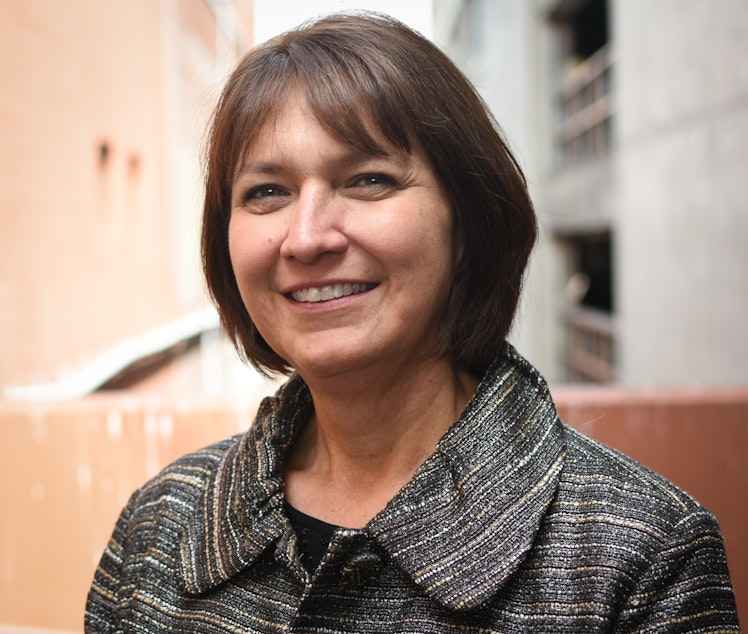Seattle's new school superintendent on late buses and racial equity

Denise Juneau took over the job as Seattle Public Schools superintendent a few months ago.
Listeners asked KUOW's SoundQs team about transportation problems, poor schools in the district, and how well Seattle compares with other school districts across the country. KUOW's Bill Radke posed some of the listener questions to Juneau.
Interview highlights below.
Radke: In the opening weeks of school there's been some school bus delays with parents in the dark. Sheri Cohen from Southeast Seattle wants to know what can be done about the transportation problems in the district.
Juneau: It was my first start to school as well this year. And I was very frustrated. I'm really sorry that all that happened. We have a transportation committee that's working on how we can better develop our systems so that doesn't happen in the future. But we have a contract with First Student and they have a bus driver shortage.
Why is that?
Pay. It's a part-time job. It doesn't pay a lot. There needs to be a lot of work done. We have a lot of great innovators in this city and I want to sit down and talk about how we can make a more robust transportation system, whether that is yellow school buses or something else.
We're talking with our state legislators as well about the school transportation funding model. Right now we spend probably $2 million on transporting homeless students to their home school. And we don't get reimbursed for those costs. There are ways that the state Legislature can help us with reimbursement costs so that Seattle can be more innovative in how we transport students to and from school.
I have a question from a listener named Robin Barr who lives in northeast Seattle. Why are there poor schools in a district and region that is so wealthy? How can money be better distributed?
Well, I wouldn't say that that there are poor schools and rich schools. I would say that there are areas where there's a higher population of students who live in poverty and we can put some better policy around that. We do take into account higher populations of students living in poverty versus those who don't. They need to have different services and we have partners who want to be involved with schools.
I was just visiting with the city this morning. You know their [education] levy when it comes into our school also focuses on areas that have high need. We also need to make sure that we're doing a great job of funding adequately all of our schools because every school has needs.
The Washington state Legislature has been ordered by the state Supreme Court to pay for basic education, which means limiting local property tax levies. How's that going to affect Seattle schools?
Well, the McCleary fix wasn't really a fix for Seattle. And the state funding all went to teacher salaries this year. The problem is that in the future there is a levy cap. We used to have levies that would provide $4,000 per student. That is now capped at about $2,500 per student. Because we aren't able to raise the revenue that we used to, we're facing a sort of levy cliff in the future.
The other issue is with special education. Of the levy dollars that we raise, about 60 percent of that funds the special education services that Seattle Public Schools provides to students and families.
So there are two things at work here: There's the levy cliff and there's the state dollars we're going to need for special education.
We have another listener question from Carol Butterfield. She wants to know how do our education problems compare with other similar-sized cities across the country?
I think there's a perception out there that Seattle Public Schools isn't great, and that's problematic because when we look at data and research, Seattle is actually a very high-performing urban district. In recent state test scores, we outperformed the state on a lot of different measures.
The idea that Seattle Public Schools is not a great place or a great district -- I don't know how that narrative started, but part of my job is making sure that we're showing information that is real.
That's not to say we don't have challenges. We definitely have to close the opportunity gap. We have to talk about racial equity in a real manner. But when we look at the measures of excellence and education and public education, Seattle Public Schools is actually a leader.
There are other districts across the country that are looking to us, particularly on racial equity. I just visited with somebody yesterday from the Harvard School of Business who actually did research on what Seattle Public Schools is doing with its social justice and racial equity works.
We have challenges that we shouldn't be afraid to confront and we need to work with the community to get that done.





